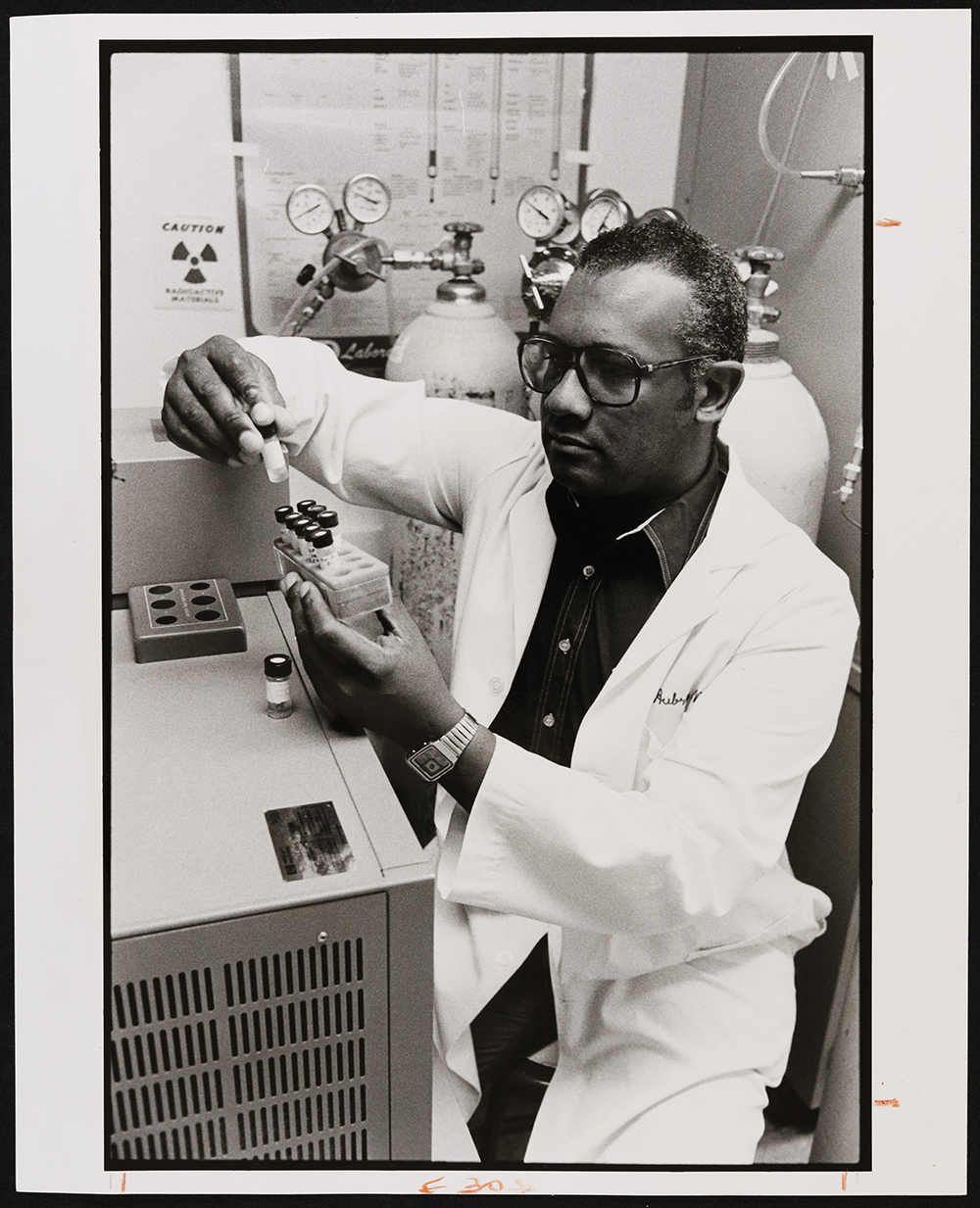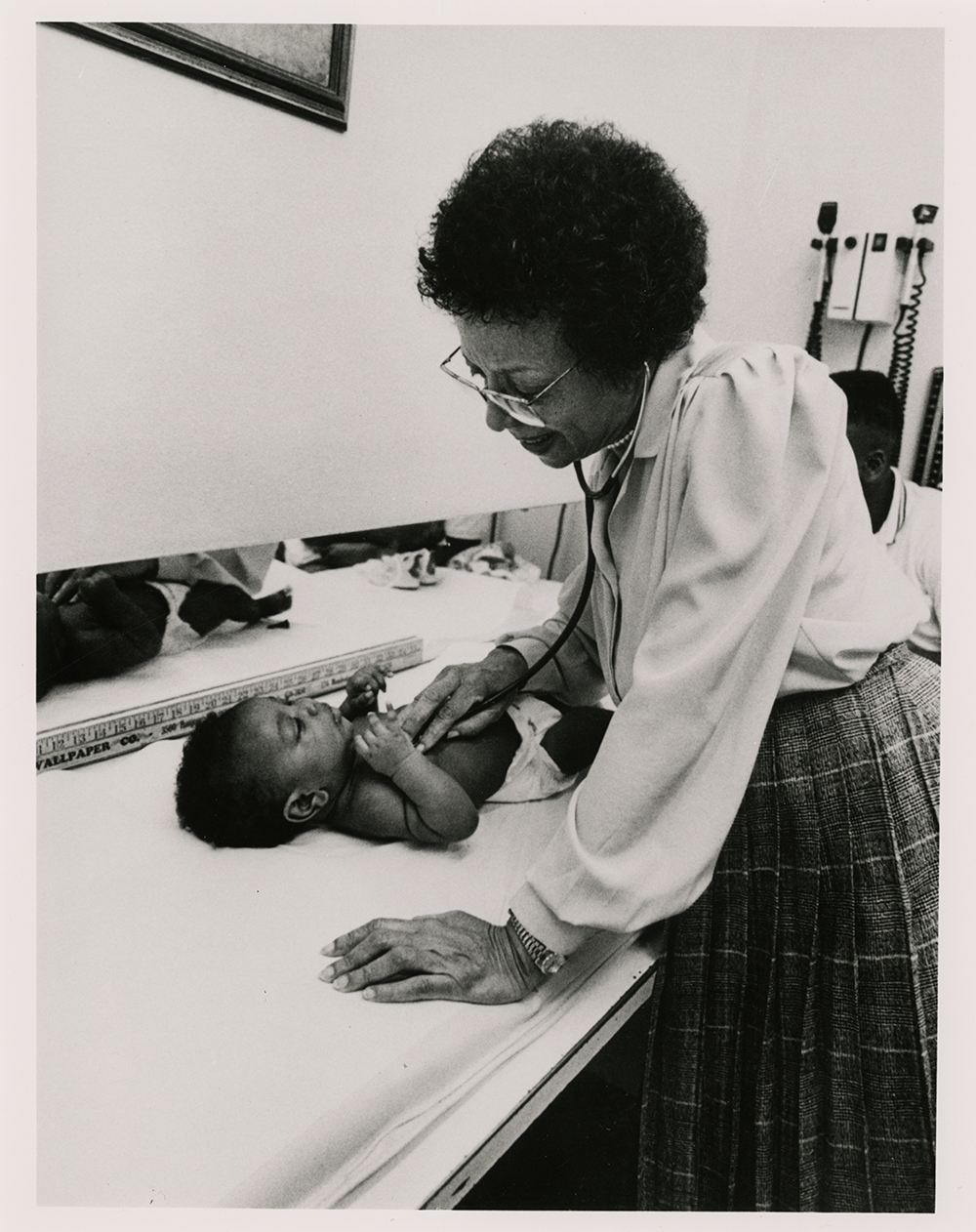This Black History Month, BJC HealthCare celebrates trailblazing Black medical professionals and milestones
Every February, the United States recognizes and celebrates the incredible innovations and achievements of African Americans who changed American history and shaped Black history. These changemakers experienced adversity, but they overcame systemic and structural racism and, in some cases, gender biases.
Throughout the 19th and 20th centuries, African Americans across all industries faced the same challenges: White Americans prohibited African Americans from going to the same schools and establishments. Both races were segregated and attended separate schools and occupied businesses and establishments for their races only. There once was a time when few professional Black doctors and nurses existed.

However, that changed in 1837 when James McCune Smith, MD, became the first African American to earn a medical degree and practice in the U.S. In 1864, Rebecca Lee Crumpler, MD, became the first Black woman physician in the U.S. In 1878, Mary Eliza Mahoney became the first African American woman to graduate from a nursing school and earn a nursing degree.
Since Smith, Crumpler and Mahoney blazed the trail for African Americans to pursue medical careers, other professionals have followed to keep their legacies alive. And while these three are known nationally for opening doors for Black people in medicine, BJC HealthCare has its own class of medical pioneers. Below, learn about these history-makers, set in the context of our health system’s early history.
1879: W.P.T. Jones becomes the first Black physician to practice in St. Louis.
1879: St. Louis Children’s Hospital opens.
1899: Provident Hospital, a small company operated by Black doctors for their patients, launches a training program for African American nurses. The state’s first training school for African American nurses, the Provident Hospital Training School of Nurses, provides a two-year program with lectures from Provident Hospital medical and consulting staff.
1902: Jewish Hospital School of Nursing launches. It was one of the first schools in the nation accredited by the National League of Nursing.
1902: Jewish Hospital opens to treat St. Louis’ booming immigration population.
1914: Barnes Hospital opens and becomes one of the first medical teaching centers in the country.
1937: Homer G. Phillips Hospital opens. It is a hospital for Black doctors, nurses and patients, and one of the few hospitals in the country that trains Black doctors and nurses. It’s named after Homer G. Phillips, a lawyer and politician, who raised money and rallied for an African American hospital. Phillips died in 1931.
Homer G. Phillips Hospital's first medical doctor was Dr. Henry Hampton. His successors were William H. Sinkler, H.J. Erwin, J.O. Blache, Andrew H. Spencer, H. Phillip Venable and Eugene N. Mitchell.

1946: Velma Jones and three other women are the first Black nurses hired at Barnes Hospital. Jones is also the first Black woman to supervise a nursing division at Barnes.
1949: The first Black doctors hired at Barnes Hospital are J. Owen Blache, George A. Gaikins, Helen Nash and Edward Williams Jr.
1949: Helen Nash starts her pediatric practice and is the first Black woman to join the attending staff at St. Louis Children’s Hospital.
1949: James Whittico becomes the first Black fellow at Barnes Hospital.
1975: Aubrey Morrison becomes the first Black chief resident at Barnes Hospital.
1976: Julian Mosley Jr. becomes the first Black chief surgery resident at Jewish Hospital.
2016: In response to regional community needs identified by the Ferguson Commission, BJC creates the BJC Scholars Fund, offering needs-based awards of $10,000 per academic year.
BJC establishes Connections groups, launched to support diversity and inclusion in the workplace.
BJC joins health care organizations across the United States in signing the American Hospital Association (AHA) Equity Pledge to eliminate health care disparities.
2020: BJC launches its Community Health Improvement initiative.
Steven Player becomes the first vice president of diversity, equity and inclusion for BJC HealthCare. The role was created to advance BJC’s mission to provide equitable, culturally aware care for all patients and ensure a diverse, culturally competent workforce.
2022: Children’s Place between Euclid and Taylor avenues is renamed Nash Way to honor, in part, Helen Nash, MD.
Today: BJC HealthCare hospitals enforce strict and comprehensive non-discrimination policies and have made strides to create a more inclusive process for medical decision-making. BJC's academic hospitals — Barnes-Jewish Hospital and St. Louis Children’s — consistently receive national recognition from the Human Rights Campaign (HRC) and the Health Equality Index (DEI) for their leadership in areas that promote respect and inclusion.
- Resource
- Resource